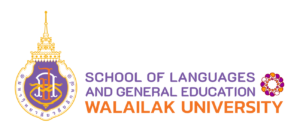The Hong Kong University (香港大學; HKU)
The Hong Kong University (HKU) (香港大學) is the oldest university in Hong Kong, founded in 1887 by the British. It began as a medical institution and, between 1909 and 2011, the idea of establishing it as a full-fledged university began to take shape. Initially, it offered programs in three faculties: The Faculty of Arts, the Faculty of Medicine, and the Faculty of Engineering.
HKU is currently ranked as the number 1 university in Hong Kong and 21st in the world, according to the QS World University Ranking 2023. It has approximately 17,000 undergraduate students and around 9,800 postgraduate students.
The General Education curriculum at HKU is based on the Common Core Curriculum, which aims to promote critical thinking and the ability to address complex problems. The curriculum includes courses in scientific and technological literacy, humanities, global issues, and China: culture, state, and society. The university emphasizes innovation, interdisciplinarity, internationalization, and the United Nations Sustainability Goals.
Each course in the Common Core is worth 6 credits, and students are required to complete 4-6 courses (24-36 credits) as part of their studies. The Common Core courses are divided into four areas:
- Arts and Humanities
- Science, Technology, and Big Data
- Global Issues
- China: Culture, State, and Society
Examples of teaching in the courses at HKU:
Each course consists of 36 hours of instruction, with 24 hours of lectures and 12 hours of small-class tutorials (2 hours of lectures and 1 hour of tutorial each week). Typically, each course is taught by up to 4 instructors, and teaching assistants may assist in the tutorials.
- There are no final exams in the General Education courses. Instead, the courses utilize a variety of assessments. The focus is on research projects, often developed in collaboration with external organizations. Examples of assessment formats include photo journals, poster presentations, art installations, geocaching analysis, app development, and ethnographies.
- Faculty members can propose new GE courses, which must be approved by both the Faculty Committee and the Common Core Committee. The university provides funding for these courses, and they are updated every three years based on a satisfactory review. A set of guidelines and reference materials are available for faculty to ensure the courses meet quality standards.
- The quality of teaching is monitored by external examiners from various disciplines. These examiners review the courses and assessments and engage in discussions with the course instructors, tutors, and students.
Additionally, there is an Annual Forum held each year, where instructors, tutors, and students meet to discuss teaching and learning practices. This forum takes place alongside official evaluations, fostering dialogue and improvement.
HKU places a strong emphasis on interdisciplinary learning and critical inquiry, encouraging students to actively engage in solving real-world problems. The curriculum utilizes a variety of teaching methods, including lectures, seminars, group projects, and opportunities for experiential learning. These approaches aim to foster active participation, enabling students to apply their knowledge in practical contexts and develop skills that are essential for addressing complex challenges in society.
